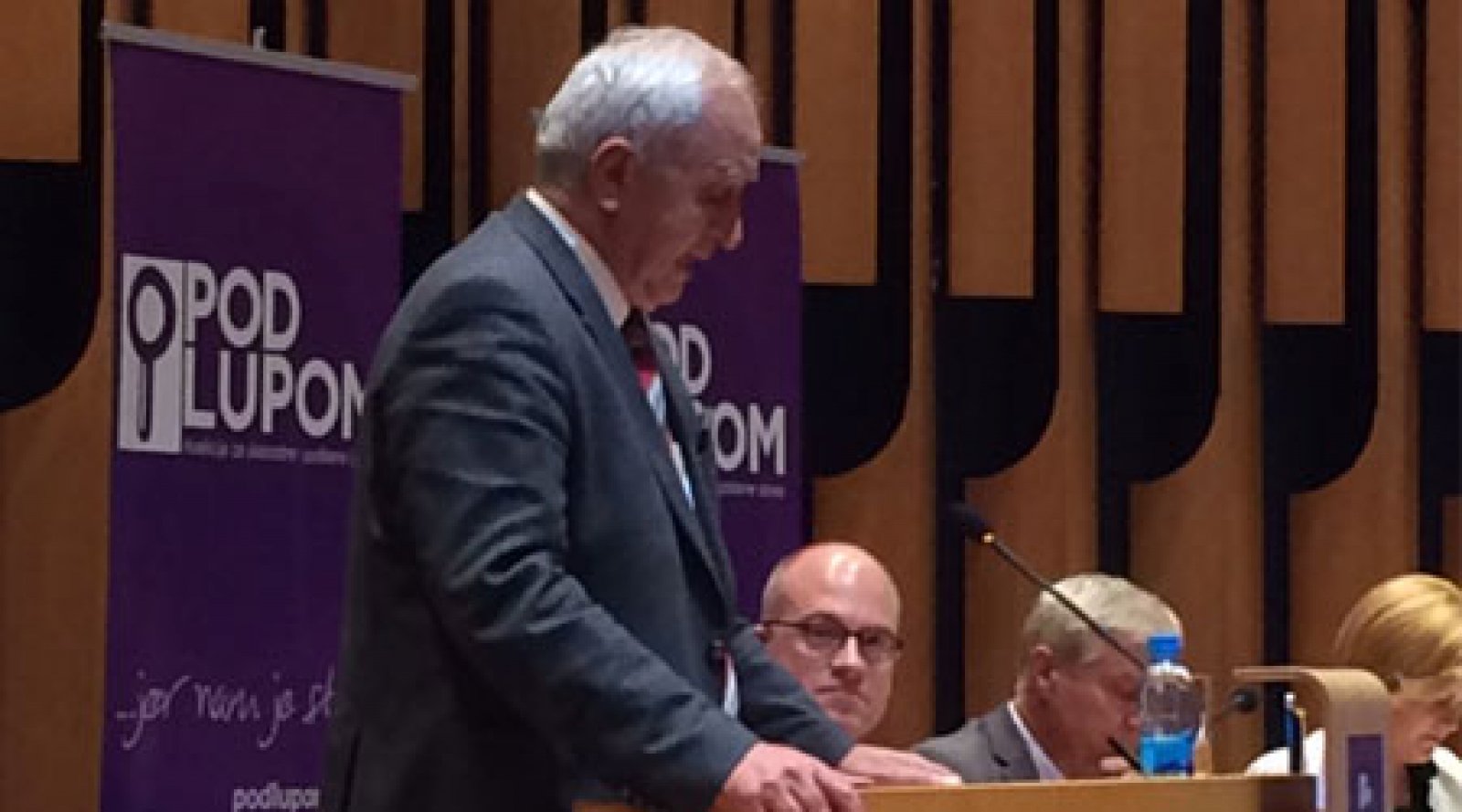
SHARE
A coalition of civil society organizations called Pod Lupom (Under the Magnifying Glass) is leading efforts to amend the electoral law in Bosnia and Herzegovina (BiH) and address shortcomings that led to fraud and manipulation in past elections. On October 12, 2015, one year after BiH’s general elections, the coalition brought together more than 100 elected officials, political leaders, election administrators and civil society representatives to determine whether the political will exists to tackle the issue of manipulation in future elections.
In opening remarks, Vehid Sehic, president of the strategic committee of Pod Lupom, reminded the assembled leaders: “While the absence or presence of political will can be discussed…[elected leaders] need to be responsible to citizens who want better electoral rules.”
Politicians and the international community have been quick to point to the need for electoral reform in BiH. Pod Lupom’s observation of the 2014 elections revealed issues in the formation of polling station committees, electoral deadlines, and the complaints process. In the last election, Pod Lupom deployed nearly 3,000 observers for the country’s most technically advanced observation to date, issuing a report with recommendations.
NDI provided technical and financial assistance to Pod Lupom in its observation of the 2014 elections and its current electoral reform advocacy efforts, with funding for this program provided by the United States Agency for International Development, the Royal Norwegian Embassy in BiH and the United Kingdom’s Foreign Commonwealth Office.
One year after the elections, little progress has been made to address past issues. The Central Election Commission initiated the formation of an interagency working group to consider and propose necessary changes to the election law, but its work was stalled as the government delayed appointing members to it. Nearly ten months passed before the working group was fully formed.
With just a year before BiH’s next elections, time is limited to amend the electoral law through an inclusive process. Municipal elections are expected in October 2016.
Past reform efforts have failed because of the unwillingness of politicians to compromise. Citizens’ frustration with this pattern of failure is high. Their role in this process is crucial in order to hold elected officials accountable to the demands for a fair electoral process.
Electoral and constitutional reform efforts have also stalled because of other priorities. Addressing long-standing problems with corruption and socio-economic issues have been made the top priorities for BiH politicians, in accordance with the country’s aspirations for EU candidacy status.
Conference participants argued that the current emphasis on socio-economic reforms does not mean that reforms in the country’s democracy can be ignored. Lazar Prodanovic, a member of parliament and of the interagency working group on electoral reform, reminded the conference participants that the shortcomings in the current electoral law are the largest generator of corruption in the country. Without addressing problems in election rules, other reform efforts will only suffer.
In order to inform the reform debate, Pod Lupom conducted comparative analyses of electoral law and practice in 40 participating states of the Organization for Security and Cooperation in Europe (OSCE). Findings on some of the most pressing issues, like the composition of polling station committees, were presented in a series of working roundtables and meetings on BiH’s electoral reform process. A Pod Lupom member involved in the research explained, “We believe that the extensive and detailed data of the coalition’s comparative analysis will offer new ideas to address the existing gaps in [BiH] law.”
Participants stressed that an inclusive process on electoral reform must begin urgently. Halid Genjac, a member of the interagency working group on electoral reform, recognized the important role the Pod Lupom has played during the election cycle. He opened the door to civil society to take part in the process through the working group’s efforts on reform.
The interagency working group will begin its work in earnest this month, and Pod Lupom will continue to provide analysis and recommendations to support its work. With a clear mandate from citizens, politicians must show the political will to begin constructive dialogue, compromise and action to improve BiH’s electoral process.
Published on October 22, 2015


